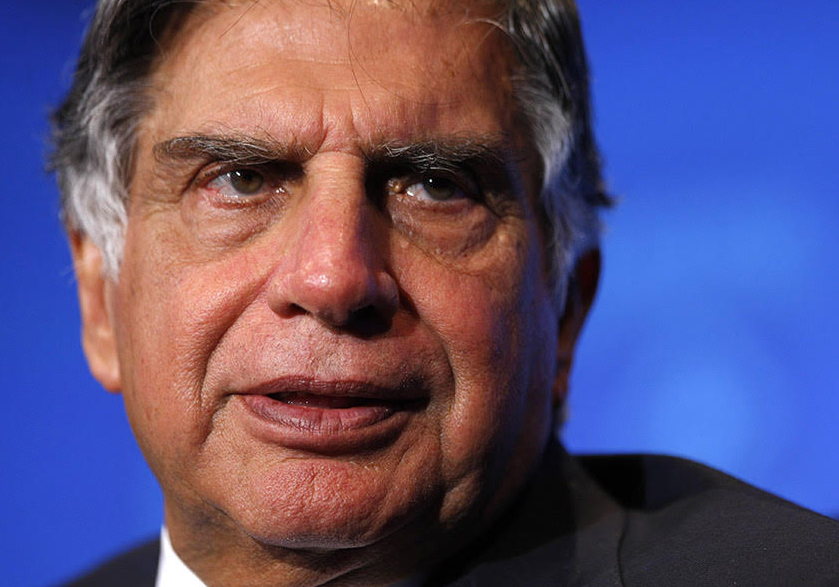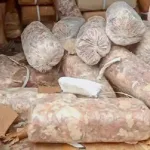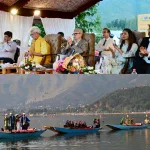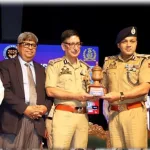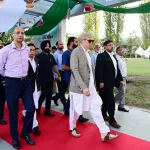TRIBUTE
Ratan Tata, the renowned businessman who inherited one of India’s oldest conglomerates and transformed it into a global powerhouse through a series of significant deals, has passed away at the age of 86. Tata led the conglomerate for over two decades from 1991, driving its rapid expansion. Today, the 156-year-old group operates in more than 100 countries, reporting $165 billion in revenue for the 2023-24 financial year. The conglomerate, with over two dozen listed companies, produces everything from coffee and cars to salt and software, operates airlines, and launched India’s first super-app. Under Ratan Tata’s leadership, the conglomerate embarked on a bold expansion that reversed the legacy of India’s colonial history. It acquired several iconic British companies, including steelmaker Corus Group Plc. in 2007 and luxury car brand Jaguar Land Rover in 2008. However, the global financial crisis soon followed, disrupting markets and slowing car sales in developed nations.
Ratan Tata dreamed big and expanded the empire beyond India’s borders. Yet, in hindsight, some of these moves appeared premature. Tata led the group for 21 years during his initial tenure, retiring in 2012. He briefly returned in 2016 as interim chairman after the controversial dismissal of his successor, Cyrus Mistry. He found himself at the center of two major power struggles for control of the Tata conglomerate during his career. The first occurred when he became chairman in 1991, facing resistance from long-standing executives who had been running independent divisions under his predecessor. The second came in 2016—four years after his retirement—as he sought to protect his legacy while Cyrus Mistry aimed to reduce the group’s debt.
Tata emerged victorious in both conflicts. In 2016, Mistry was removed as chairman of Tata Sons, the group’s primary holding company, through a boardroom coup, sparking a fierce legal battle that risked ending a 70-year alliance with the Mistry family. In 2020, the Mistry family signaled their intent to sell their 18% stake in Tata Sons, further cementing Tata’s control over the conglomerate.
In late 2008, the Tata Group faced another crisis when terrorists attacked its iconic Taj Mahal Palace hotel in Mumbai, located near the Gateway of India, as part of a larger assault on the city. The four-day siege claimed the lives of around 31 people, including 11 hotel staff. Today, visitors to the hotel are met with a memorial honoring the victims, whose families Ratan Tata personally visited. Tata never married and had no children, leaving a leadership void at the powerful Tata Trusts upon his death. These charitable trusts, which own about 66% of Tata Sons, hold significant control over the entire conglomerate.
Traditionally, leadership of Tata Trusts has remained within the Tata family, maintaining influence over the conglomerate through their stake in Tata Sons. In his final years, Ratan Tata became an enthusiastic supporter of startups, backing ventures like Ola Electric Mobility Ltd, which had a highly successful public offering in 2024, and Goodfellows, a platform focused on fostering intergenerational friendships. The Tata Group traces its origins to 1868 when Jamsetji Nusserwanji Tata established a trading company that later expanded into industries such as cotton mills, steel production, and hotels. The Tata family is part of the Parsi Zoroastrian community, which escaped religious persecution in Persia centuries ago and sought refuge in western India.
When Ratan Tata took over as chairman of the Tata Group at the age of 54, he faced the challenge of managing a fragmented and loosely connected set of companies. His early years with the group weren’t easy, as he struggled to establish his influence across its diverse businesses.
After earning a degree in architecture from Cornell University, Tata began his career at Tata Steel in Jamshedpur as a junior executive. His tenure in some of the group’s ventures, like National Radio and Electronics (Nelco) and Empress Mills, yielded mixed results highlights the difficulties he faced in the early stages of his leadership. Despite these challenges, he remained calm and soft-spoken, a demeanor he carried with him throughout his career. In the early years of Ratan Tata’s leadership, senior executives from key companies like Tata Steel’s Russi Mody and Indian Hotels’ Ajit Kerkar didn’t always follow his direction. These leaders operated their firms independently, with little regard for group cohesion. Some even indulged in personal luxuries, using company resources to collect art and fly on private jets for personal trips which reflect the autonomy they enjoyed before Tata’s efforts to bring the conglomerate under a unified vision.
At the time Ratan Tata took charge, Tata Sons, the group’s holding company, had relatively small stakes in many of its businesses, sometimes as low as 3 or 13 percent, leaving them vulnerable to hostile takeovers. Without increasing his own small shareholding, Tata worked to strengthen his control over the group. He introduced a retirement age of 75, which led to the departure of senior leaders like Russi Mody, and orchestrated a significant boardroom ouster of Ajit Kerkar. Additionally, he focused on increasing Tata Sons’ stake in various group companies, ensuring greater stability and cohesion within the conglomerate.
One of Ratan Tata’s boldest ventures was the introduction of the Tata Nano in 2008, envisioned as the world’s most affordable car. The Nano became a powerful representation of Tata’s dedication to innovation and his desire to meet the needs of everyday people. Staying true to his word, Tata ensured that the base model was priced at Rs 1 lakh (ex-factory), reflecting his commitment to keeping the car accessible. The project garnered international attention and highlighted Tata’s resolve to make innovation accessible to the masses.
After more than two decades at the helm of Tata Group, Ratan Tata retired as Chairman of Tata Sons in 2012. Even though he stepped back from day-to-day operations, his connection with the group remained strong as he was named Chairman Emeritus. This honorary role allowed him to provide advice and guidance while no longer being directly involved in management. His legacy as a visionary leader endured, and his influence continued to steer the group’s future course.
In his later years, as his health began to decline, Ratan Tata shifted much of his attention towards philanthropy and dedicated his energy to Tata Trusts, which holds the majority share of Tata Sons and, by extension, the entire conglomerate. In 2018, he reconnected with Jehangir, a former trusted aide, inviting him to join the board of Tata Trusts, a move that underscored Tata’s commitment to preserving the values and culture of the group he had shaped. His concern wasn’t just about the success of the business, but about ensuring that the ethos of the Tata Group endured, even in his absence.
In his final years, Tata largely withdrew from public life, choosing instead to focus on building a network of cancer hospitals, a pet hospital, and supporting research at the Oxford India Centre for Sustainable Development. His interest in health and technology remained as sharp as ever, and he actively engaged with ongoing research in these fields, spanning multiple disciplines. Even as he retreated from the public eye, he maintained regular contact with those involved in these projects, demonstrating his deep intellectual curiosity and commitment to pushing boundaries.
Ratan Tata’s personal life was as understated as his professional one was impactful. He never married, had no children, but harbored a deep love for dogs, a passion that stayed with him throughout his life. In fact, one of the few indulgences he allowed himself was building a swimming pool—for his beloved pets. This simple luxury spoke volumes about his unpretentious lifestyle and personal values, as he prioritized companionship over material excess.
Even as he faded from the spotlight, Tata’s legacy was about values, vision, and a lifelong dedication to improve the world around him, whether through pioneering industries or through quiet, profound acts of charity.
(Author is Professor & Chairman of Centre for Narendra Modi Studies (CNMS). Convener of Ratan Tata Memorial Lecture Series. Email: [email protected])


